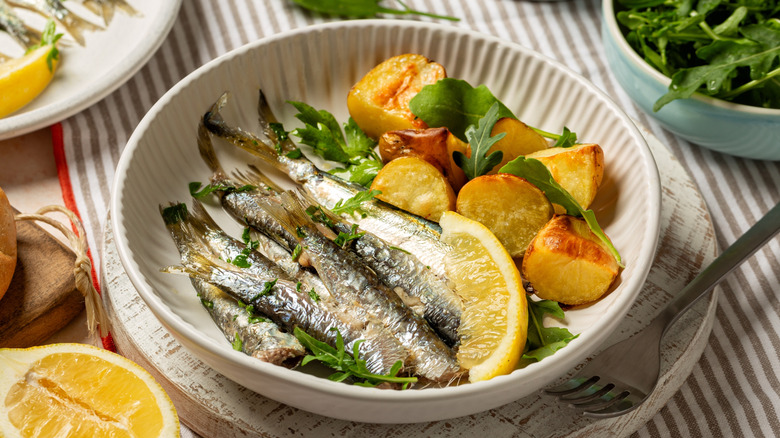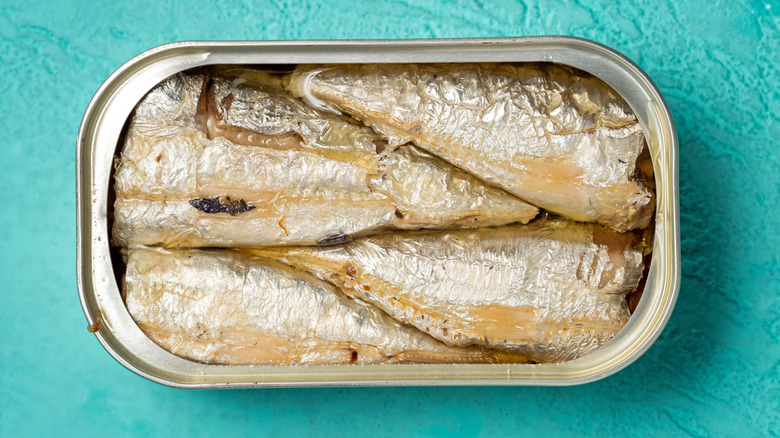What You Need To Consider Before Eating Canned Sardines
There is nothing more satisfying than ripping open a can of sardines, coating a hunk of crusty bread with butter, and just going to town. While they won't win everyone over, they are very versatile — you can use this tinned fish to add a new level of umami to fried rice, toss them with a lemony pasta, or pop some canned sardines in the air fryer for a crispy snack.
These little fish are absolutely nutritious, but there is something to consider before consuming these morsels: They are pretty high in sodium and purines. As is well known, excess salt consumption can cause high blood pressure. Individuals at risk of experiencing heart attacks or strokes, or those with diabetes, are also generally sensitive to the effects of sodium and should be aware that a 100-gram serving of sardines contains just over 300 milligrams of sodium.
Those that have suffered gout or kidney stones should be especially watchful of purines. Purines are chemical compounds that break down into uric acid during digestion. Gout, or the king's disease, is a very painful type of arthritis in which uric acid crystals build up around the joints, usually in the feet and toes. Kidney stones can also be caused by the buildup of uric acid crystals. The crystals stick together and form stones in the kidneys, typically causing intense pain as the body tries to pass them through the urinary system. These are as lovely as they sound, which is to say, not at all. It would take quite a lot of sardine consumption to give you gout or kidney stones, but those suffering from either should absolutely steer clear.
Sardines are good for you and the Earth
Like most foods, it seems sardines are best in moderation. For many individuals, they can be a key part of a rich and varied diet. Sardines provide a flavorful, cheap, and easy way to bump your protein consumption way up — they have more than 24 grams of protein in just 100 grams of fish. They're full of omega-3 fatty acids, calcium, vitamin D, potassium, magnesium, zinc, and iron too. They also have some of the lowest levels of mercury of all types of seafood. It would be downright illogical to avoid sardines if you don't have to.
Aside from just considering the health of humans, wild-caught tinned fish generally has a far lower carbon footprint compared to other popular proteins like beef, pork, or chicken. This is partly because it requires minimal refrigeration, as fish meant for canning are preserved in a tin with oil or water shortly after being caught. There's also no need to burn forests to create farmland or irrigate with fresh water. A 2018 study published in the Frontiers in Ecology and the Environment journal even found that a diet including farmed mollusks and wild-caught pelagic fish (like sardines) can have a lower environmental impact than some vegetarian or vegan diets. All that to say, don't feel bad about diving into the briny depths of sardines – you might even be helping the planet.

